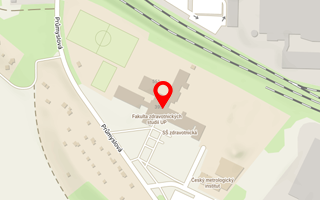Publikace detail
Hodnocení obtížnosti položek dotazníku a úrovně vybraných obecných znalostí u pacientů s diabetem mellitem 2. typu
Autoři:
Šoukalová Kristýna | Červenková Zuzana | Holubová Marie
Rok: 2020
Druh publikace: článek v odborném periodiku
Název zdroje: Florence
Strana od-do: 16-18
